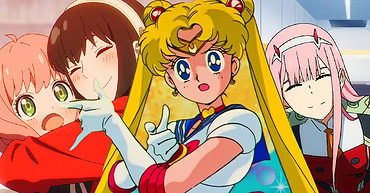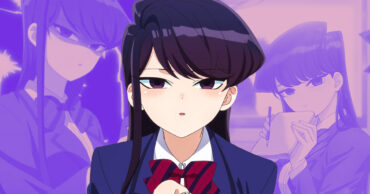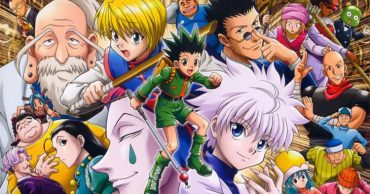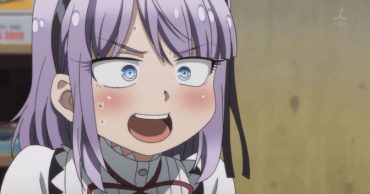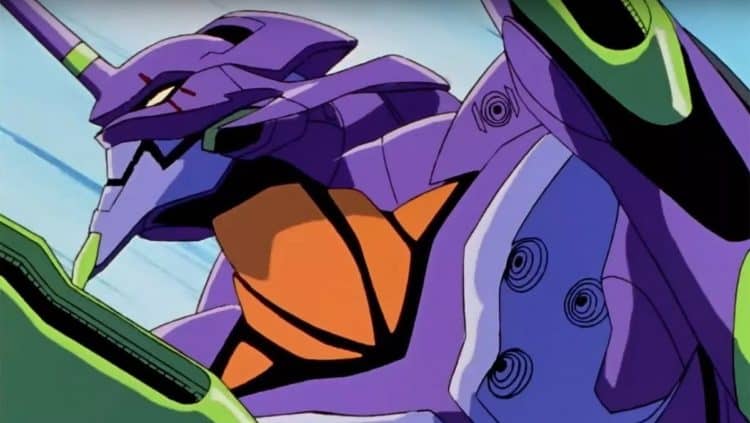
Neon Genesis Evangelion is one of the most influential anime shows ever made. For those who are curious, it is a mecha show, meaning that it is centered upon huge robots with human pilots. However, Neon Genesis Evangelion is interesting in that it is neither a super robot show, which focuses upon much bigger and even more implausible robots, nor a real robot show, which tends to incorporate more realistic physics as well as other storytelling constraints. Instead, the show combines elements from both halves of the mecha genre, which is one of the elements that have enabled it to stand out over the course of its existence. As for the others, well, it helps to know that Neon Genesis Evangelion is a psychological drama set in an apocalyptic setting with mecha trappings.
In short, the story is situated in a future Earth that has been devastated by a catastrophic event called Second Impact. At the start of the series, a teenage boy named Shinji Ikari is called to the city of Tokyo-3 by his absentee father Gendo Ikari, who is in charge of a program to defeat alien monsters called Angels through the use of bio-mechanical mechs called Evangelions. Shinji hasn’t been called in because of Gendo’s interest in reconnecting with him. Instead, Shinji has been called in because he is one of the few individuals who is capable of piloting an Evangelion, with the result that Gendo soon forces him to become the pilot of the Evangelion Unit-01 through various sources of pressure. Unsurprisingly, Shinji does not react well to any of this. Something that becomes worse and worse over time as Shinji learns more and more about the true nature of the Evangelion program as well as the people who have been sacrificed and continue to be sacrificed along the way. Eventually, the whole series culminated in one of the most talked-about anime endings ever made, so much so that the uproar convinced the people behind the show to make a pair of movies called Death & Rebirth and The End of Evangelion to serve as an alternate ending.
There are various reasons why interested individuals might want to watch Neon Genesis Evangelion:
Giant Robot Battles
Fundamentally, Neon Genesis Evangelion is a mecha show. As a result, while giant robot battles might not be what most people would consider to be particularly high-brow, they are nonetheless one of its biggest selling points. Critically, Neon Genesis Evangelion has a couple of points that enable its giant robot battles to stand out from those of its super robot competitors, real robot competitors, and everything in between. One, the superficial appearance of Evangelions conceal their true, bio-mechanical nature, which is relevant because Evangelions can be very different from a lot of their counterparts in other mecha media when it comes to their behaviors as well as their movements. Two, each fight is one of a kind because each of the Angels is an unique creature with unique capabilities, meaning that each one needs to be countered using different tools and different methods. For instance, one of the most iconic Angels is Ramiel, which possessed a powerful shield as well as a powerful particle beam that could hit targets at incredible distances with perfect accuracy. As a result, Ramiel wasn’t something that could be tackled by an Evangelion operating on its own but instead had to be countered by a team of two Evangelions with one taking the shot and another providing protection from the particle beam.
Interesting Characters
There is a long-running debate among anime-watchers about whether the protagonist Shinji should be considered pathetic or not for his actions over the course of the series. On the one hand, this is because Neon Genesis Evangelion features numerous elements that would be considered wish fulfillment for the audience surrogate in more upbeat mecha shows. On the other hand, Neon Genesis Evangelion makes it pretty clear that Shinji is being forced to serve as a child soldier on top of his other issues, meaning that the entire series sees trauma being piled upon his trauma. Even now, this argument still pops up in anime communities from time to time, which speaks volumes about the investment that a wide range of people have in the series. Moreover, it should be mentioned that the rest of Neon Genesis Evangelion‘s cast tends to produce a similar mix of responses, which is perhaps unsurprising when all of them come with serious flaws of one kind or another.
Incredible Influence
Neon Genesis Evangelion was very, very successful. For proof, look no further than the fact that the anime has spawned multiple movies, multiple manga series, multiple video games, and a remarkable range of other kinds of merchandise. However, it is most interesting because of its impact, which is so immense that some people have credited it with introducing anime to a worldwide audience.
As for less subtle examples of Neon Genesis Evangelion‘s influence on Japanese pop culture, the cases are both numerous and wide-ranging in nature. For example, its mix of mecha with religious imagery has popped up in a number of relatively well-known video games such as Xenogears. Likewise, at least one Neon Genesis Evangelion character Rei Ayanami has managed to inspire an entire character archetype in Japanese anime because of her popularity, which is particularly hilarious because the character was always meant to provoke a very different kind of response. In any case, if people want to understand more about the references that they see in Japanese anime and related media but don’t quite understand, watching Neon Genesis Evangelion could help them clear up a fair number of questions.
Further Considerations
Currently, Neon Genesis Evangelion is once again available to interested individuals in the west via Netflix. As such, it will be interesting to see how a new generation of viewers will interpret it. Something that is particularly true because there are those who think that its themes are bound to resonate with modern viewers more than ever because of the problems that are confronting us in the present time.
 Follow Us
Follow Us
